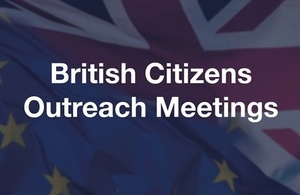- over £50 million invested in innovative, clean technology as the UK works with African countries to develop sustainable energy sources, providing thousands of people with clean energy
- UK will share expertise in green finance and science and innovation to develop solar farms and battery storage projects
- African energy demand is set to rise 60% by 2040 – clean energy will be central in powering Africa’s growing economies and increasing access to electricity
Green energy supply in Africa is set for a major boost after the UK government announced winners of an investment package for the continent’s clean energy infrastructure at the African Investment Summit today.
Solar farms in Kenya, geothermal power stations in Ethiopia and clean energy storage across sub-Saharan Africa will receive funding and see leading UK scientists and financial experts working with their African counterparts to realise the continent’s huge potential for renewable energy.
With African energy demand set to rise by 60% by 2040, UK experts will help deliver green solutions for the continent’s growing energy needs, bringing clean energy to thousands of people and creating jobs and increased prosperity.
Business and Energy Secretary Andrea Leadsom said:
Our world-leading scientists and financial experts will work hand in hand with African nations to support their quest for energy security, powering new industries and jobs across the continent with a diverse mix of energy sources while promoting economic growth.
Speaking at the summit, Ms Leadsom emphasised the opportunity for many African countries to leapfrog coal power to cleaner forms of energy but stressed that more needed to be done to unlock investment.
A world-leader in reducing carbon emissions at home, today’s investment in global clean energy comes after the Prime Minister, Boris Johnson, announced the £1 billion ‘Ayrton Fund’ for British scientists last Autumn to help developing nations reduce reliance on fossil fuels and reduce their carbon emissions.
As part of the initiatives announced today, the UK will support African countries with the technical skills and expertise they need in order to attract investment in renewable projects, getting innovative projects like wind and solar farms up and running. Close collaboration with African countries will be key as the UK gears up to host the UN climate talks (COP26) later this year.
UK funded projects in Africa include winners of the Energy Catalyst Competition, which has seen solar plants, energy storage batteries and hydro-power built in countries such as Botswana and Kenya; a £10 million programme which matches UK based green finance experts with project developers from developing countries to facilitate investment in clean energy projects; and the Nigeria 2050 calculator, a modelling tool designed by UK scientists to support the Nigerian government’s sustainable development planning.
Kenya is also set to benefit from a £30 million government investment in affordable energy-efficient housing which will see the construction of 10,000 low-carbon homes for rent and sale. This will support the creation of new jobs in Kenya’s green construction industry and help tackle climate change.
Over 50% of the UK’s energy production came from renewable sources last year, and with London’s expertise as the global hub for green finance, the UK is best placed to be Africa’s leading partner and help it harness its wealth of renewable sources as it moves away from coal power.


